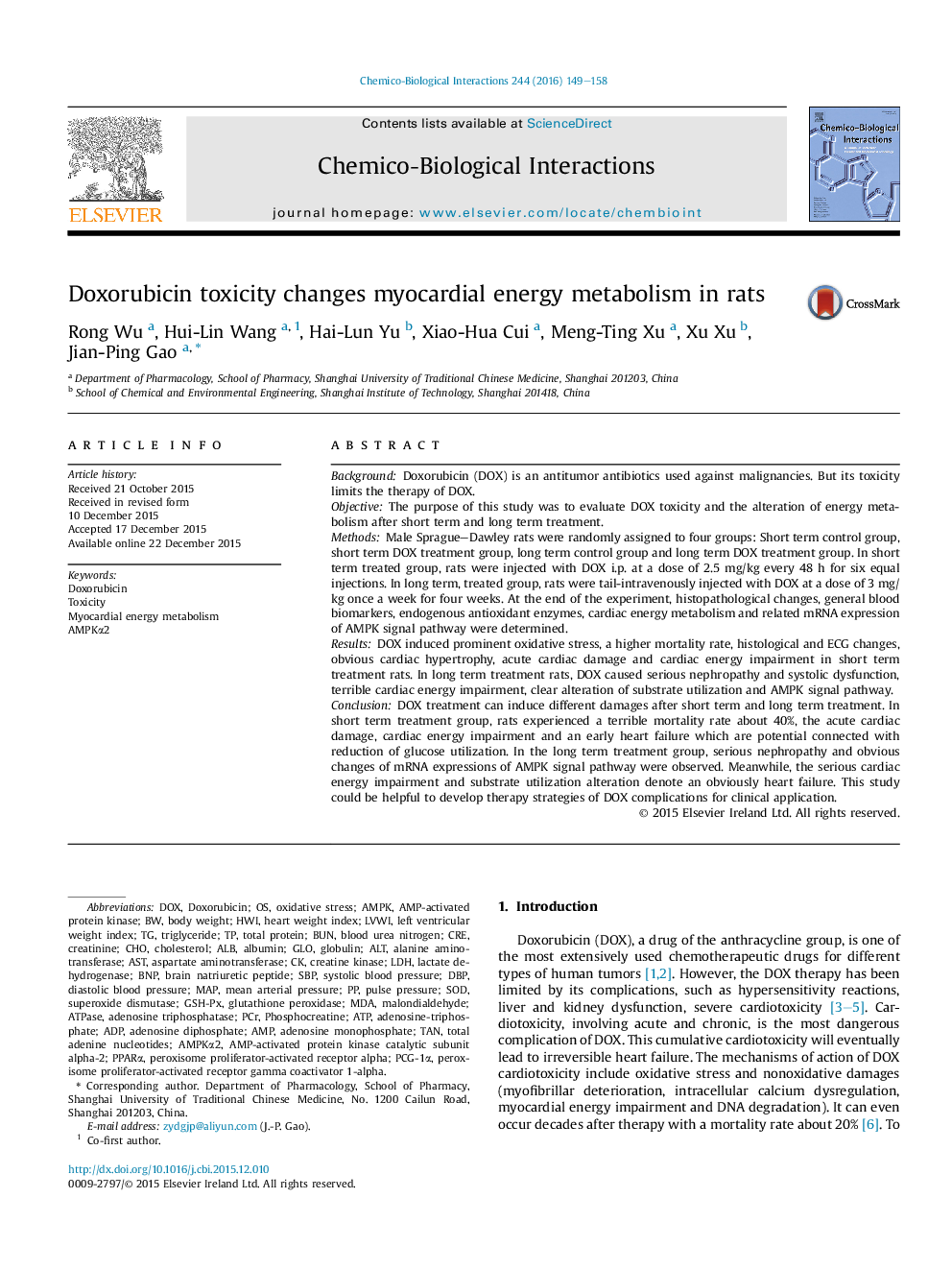| کد مقاله | کد نشریه | سال انتشار | مقاله انگلیسی | نسخه تمام متن |
|---|---|---|---|---|
| 2580054 | 1561597 | 2016 | 10 صفحه PDF | دانلود رایگان |
• Different damages of doxorubicin-treated rats between short term and long term were examined.
• Doxorubicin treatment induces acute cardiac damage, acute energy impairment and early heart failure in short term.
• Doxorubicin treatment causes serious nephropathy, terrible cardiac energy impairment and severe heart failure in long term.
• Doxorubicin treatment only induces clear alteration of substrate utilization and AMPK signal pathway in long term.
BackgroundDoxorubicin (DOX) is an antitumor antibiotics used against malignancies. But its toxicity limits the therapy of DOX.ObjectiveThe purpose of this study was to evaluate DOX toxicity and the alteration of energy metabolism after short term and long term treatment.MethodsMale Sprague–Dawley rats were randomly assigned to four groups: Short term control group, short term DOX treatment group, long term control group and long term DOX treatment group. In short term treated group, rats were injected with DOX i.p. at a dose of 2.5 mg/kg every 48 h for six equal injections. In long term, treated group, rats were tail-intravenously injected with DOX at a dose of 3 mg/kg once a week for four weeks. At the end of the experiment, histopathological changes, general blood biomarkers, endogenous antioxidant enzymes, cardiac energy metabolism and related mRNA expression of AMPK signal pathway were determined.ResultsDOX induced prominent oxidative stress, a higher mortality rate, histological and ECG changes, obvious cardiac hypertrophy, acute cardiac damage and cardiac energy impairment in short term treatment rats. In long term treatment rats, DOX caused serious nephropathy and systolic dysfunction, terrible cardiac energy impairment, clear alteration of substrate utilization and AMPK signal pathway.ConclusionDOX treatment can induce different damages after short term and long term treatment. In short term treatment group, rats experienced a terrible mortality rate about 40%, the acute cardiac damage, cardiac energy impairment and an early heart failure which are potential connected with reduction of glucose utilization. In the long term treatment group, serious nephropathy and obvious changes of mRNA expressions of AMPK signal pathway were observed. Meanwhile, the serious cardiac energy impairment and substrate utilization alteration denote an obviously heart failure. This study could be helpful to develop therapy strategies of DOX complications for clinical application.
Figure optionsDownload as PowerPoint slide
Journal: Chemico-Biological Interactions - Volume 244, 25 January 2016, Pages 149–158
